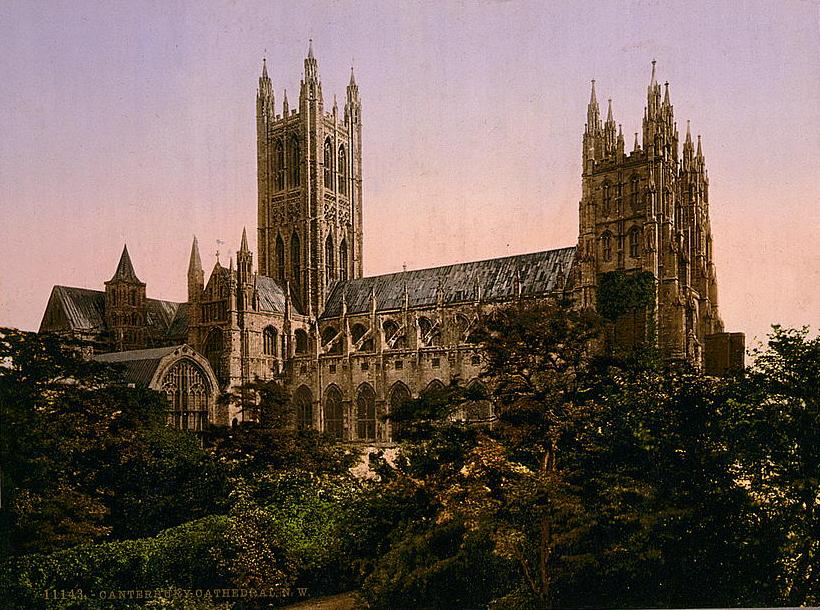 |
| Looks lovely. Let's take it. |
The reality is, of course, that secularists are really only doing the job that Jesus started. In the manner of prayer, Jesus (you can look this up in Matthew 6) was quite explicit - keep it private. Don't trumpet your religiosity. Keep your faith between you and your god, and love your neighbour as yourself, regardless of religion. That last bit is justified, for it is one of the core messages of that wonderful secular parable, the Good Samaritan.
Many Christians, of course, accept this, and it is something of an encouragement to those of us who are Atheistic Christians to see a degree of convergence - often from some of the more evangelical quarters. They know what it's like to be a Dissenter, kept on the outside by established modes and mores of officially-sanctioned religious display.
And then on the other hand we have the calls from respected atheists like Alain de Botton for us to recognise the deeply human needs that the churches have recognised and evolved to cater for - needs for nurturing, direction, inspiration, and even directive ethical guidance. De Botton feels we should incorporate these principles (including the medium of the Sermon) into secular life. He has written a brilliant book, and it's certainly thought-provoking, but is he trying to reinvent the wheel? How can atheists on the one hand decry the toxins of religion, and on the other seek to build a weird simulacrum of religion into our secular society? A conundrum.
Well, it's not a conundrum to Christian Atheists. Furthermore, I propose a Plan that can resolve both these thorny problems, and more besides. A Plan that seems daring and doomed to failure, but which, I would argue, is already well underway, and just needs a little push to take it over the line.
What is that Plan?
A full Atheist takeover of the Church of England. That's what.
Now I can hear the WTFs sounding out like the bells of Canterbury Cathedral, but think about it. We know there is no god - we don't have to fool anyone. What's more, we're quite explicit (at least in the CJCA) that we are seeking to remap a fine (and sometimes not-so-fine, but there are lessons there too) tradition to a modern understanding of science and ethics. We often feel that we are on the fringe, and many of us are trying to break away from churches. However, think about it. About 25% of Church of England clergy and about 15% of regular attendees are atheistic or agnostic anyway. And congregations are tiny - if a bunch of Christian Atheists turned up on a Sunday, we could easily make a majority. We could get those agnostic clergy to publicly identify as Atheistic Christians, and get the CJCA message out there.
I think (OK, I don't know) that enough people would embrace this concept - and the vision behind it - to effect a real demographic change within the pews of England, Scotland, Wales and Northern Ireland, if not the world. Yes, I know the Anglican church is split up across our nations and outside the UK, but the same principle holds.
What then? Well, we could be very open about our atheological project. Theology would cease to be the study of the non-existent, and a more practical remapping exercise, such as we've been doing (minimally) here at CJCA. We can keep Christianity, and seek a way forward, but using the humanistic principles that seem, as far as we can tell, to be close to the teachings of a Jesus who is a historical "Christ", but who also made mistakes, and could be a bit of a dick when he chose to be. A Jesus that we can actually identify with more!
We need explicitly atheistic sermons (sensitively delivered) ringing out from the pulpits. We need ethical humanistic guidance illustrated with examples, good and bad, from our rich biblical sourcebook and other historical sources. We need scholars to examine the bible and other ancient texts with a proper academic attitude. We need commentators from an Atheistic Christian perspective to go on TV, on radio, on the Internet and elsewhere. We can voice Church support for science, tolerance, inter-faith dialogue (with "faith" being specified as a faith in essential humanity), political activism and societal and intenational ethics.
And we need an institution that will allow us to do that. I suggest that the Anglican Church looks nice. Why don't we simply take it over? All it needs is that teensy push.
I'm only joking a little bit.

